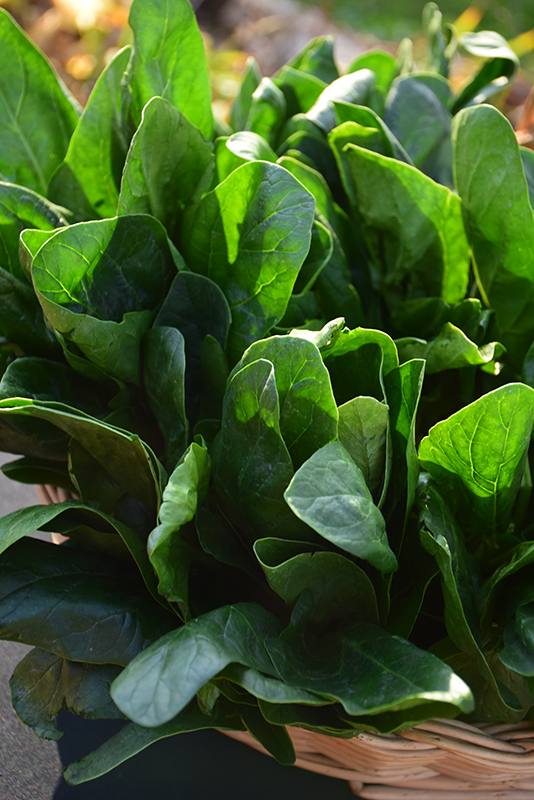Height: 6 inches
Spread: 8 inches
Sunlight:
![]()
![]()
Hardiness Zone: (annual)
Description:
Resistant to heat induced bolting, this variety is perfect for gardeners of any level; well suited for containers and garden beds; uniform, dark green baby leaves are succulent and flavorful; smooth leaves make cleaning a breeze; great addition to salads
Edible Qualities
Seaside Spinach is an annual vegetable plant that is commonly grown for its edible qualities. The small oval dark green leaves can be harvested at any time in the season. The leaves have a pleasant taste and a soft texture.
The leaves are most often used in the following ways:
- Fresh Eating
- Eating When Cooked/Prepared
- Cooking
- Canning
- Freezing
Planting & Growing
Seaside Spinach will grow to be only 6 inches tall at maturity, with a spread of 8 inches. This fast-growing vegetable plant is an annual, which means that it will grow for one season in your garden and then die after producing a crop.
This plant is typically grown in a designated vegetable garden. It does best in full sun to partial shade. It does best in average to evenly moist conditions, but will not tolerate standing water. It may require supplemental watering during periods of drought or extended heat. This plant should not require much in the way of fertilizing once established, although it may appreciate a shot of general-purpose fertilizer from time to time early in the growing season. It is not particular as to soil pH, but grows best in rich soils. It is somewhat tolerant of urban pollution. Consider applying a thick mulch around the root zone over the growing season to conserve soil moisture. This is a selected variety of a species not originally from North America.
Seaside Spinach is a good choice for the vegetable garden, but it is also well-suited for use in outdoor pots and containers. It is often used as a 'filler' in the 'spiller-thriller-filler' container combination, providing the canvas against which the thriller plants stand out. Note that when growing plants in outdoor containers and baskets, they may require more frequent waterings than they would in the yard or garden.

